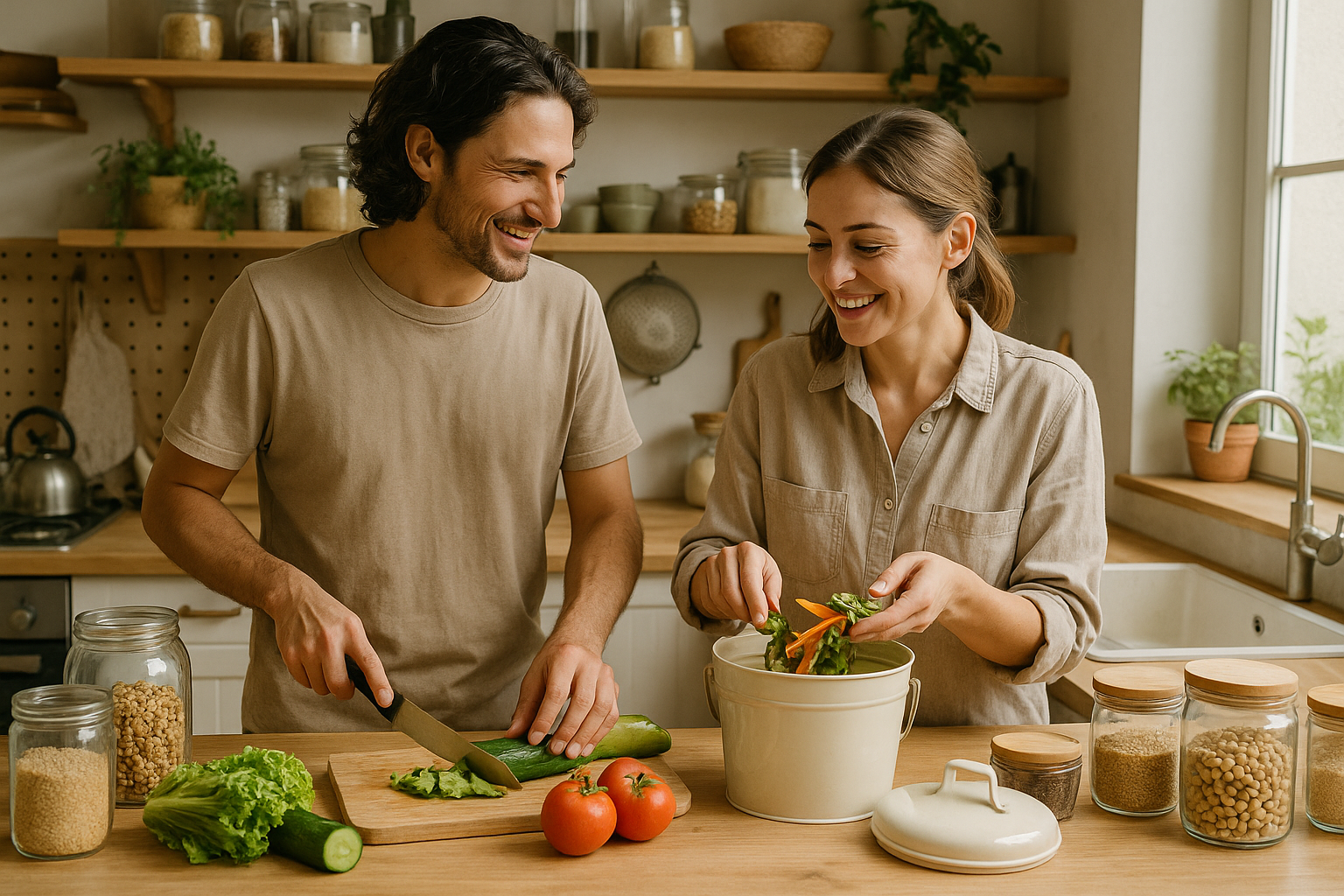The kitchen is one of the busiest rooms in any home—and also one of the most resource-intensive. From food waste to plastic packaging and high energy use, it’s easy to create a lot of environmental impact without realizing it.
But the kitchen also offers countless opportunities to live more sustainably, often with simple changes that don’t require much time, effort, or money.
Why Focus on the Kitchen?
Here’s why the kitchen plays a key role in sustainable living:
- It’s where most household waste is generated
- Food choices impact land, water, and emissions
- Packaging and disposables are common
- Appliances use significant energy and water
- Habits formed here affect your entire lifestyle
By making smarter kitchen choices, you improve both your carbon footprint and your health.
Reduce Food Waste With Better Planning
A sustainable kitchen starts before you cook—when you plan.
Smart planning tips:
- Create a weekly meal plan
- Make shopping lists and stick to them
- Check your fridge and pantry before buying more
- Store food properly to extend shelf life
- Prioritize “eat me first” zones in your fridge
Less waste means fewer emissions and lower grocery bills.
Buy in Bulk and Ditch Excess Packaging
Packaging is a major source of waste—especially in supermarkets.
Sustainable shopping habits:
- Buy grains, beans, nuts, and spices in bulk
- Bring your own containers or bags
- Choose produce without plastic wrapping
- Shop at farmers markets or zero-waste stores
- Avoid single-serve or overly packaged items
Look for reusable alternatives whenever possible.
Switch to Reusables
A sustainable kitchen is filled with tools and containers designed to last.
Simple swaps:
| Disposable | Reusable Alternative |
|---|---|
| Paper towels | Cloth rags or napkins |
| Plastic wrap | Beeswax wraps or silicone lids |
| Ziplock bags | Silicone bags or jars |
| Aluminum foil | Baking mats or glass dishes |
| Takeout containers | Stainless steel lunch boxes |
These items save waste and money over time.
Compost Your Food Scraps
Composting is one of the best habits you can adopt for a greener kitchen.
What you can compost:
- Fruit and veggie peels
- Coffee grounds and tea leaves
- Eggshells
- Bread and grains
- Paper napkins (unbleached)
If you don’t have outdoor space, try countertop compost bins, bokashi systems, or community compost drop-offs.
Cook With Efficiency
Cooking smarter helps save energy and reduce your environmental impact.
Energy-saving tips:
- Use lids to retain heat
- Match pot size to burner size
- Defrost food in the fridge
- Cook in batches and freeze portions
- Use toaster ovens or air fryers when possible
Less energy = lower bills and lower emissions.
Use Every Part of the Food
Root-to-stem cooking helps eliminate unnecessary waste.
Try:
- Using carrot tops for pesto
- Making broth from vegetable scraps
- Roasting squash seeds
- Sautéing beet greens like spinach
- Blending soft fruit into smoothies or desserts
It’s creative, nutritious, and resourceful.
Choose Plant-Based More Often
Animal agriculture is a leading contributor to greenhouse gases. Reducing your meat and dairy intake makes a big difference.
Easy plant-based swaps:
- Beans and lentils instead of ground meat
- Nut or oat milk instead of dairy
- Mushrooms, tofu, or jackfruit as meat substitutes
- Cheese alternatives made from cashews or almonds
Start with one or two meatless days per week and expand gradually.
Use Natural Cleaning Products
Keep your kitchen clean without polluting the air or water.
DIY cleaner:
- Mix vinegar, water, and lemon peels in a spray bottle
- Sprinkle baking soda for scrubbing power
- Use essential oils for scent and antibacterial properties
Avoid plastic-packaged, chemical-heavy cleaners whenever you can.
Store Food Sustainably
Keeping food fresh is easier with the right tools.
Suggestions:
- Glass jars for dry goods
- Cloth bags or silicone pouches for snacks
- Stackable containers to save space
- Airtight lids to prevent spoilage
- Freeze food before it goes bad
Label leftovers with dates to reduce forgotten food.
Make Sustainability Your Default
A sustainable kitchen doesn’t require perfection—just a mindset of care and progress.
The more you reduce, reuse, and repurpose, the easier it becomes. And over time, you’ll notice that your kitchen feels simpler, cleaner, and more aligned with your values.
